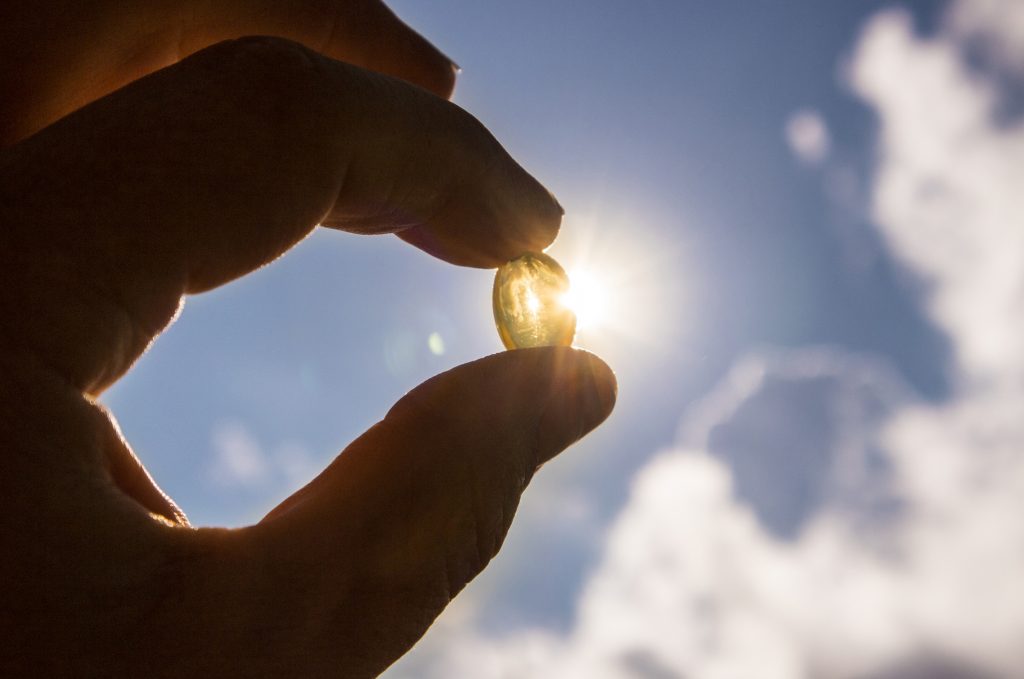We all know how getting out on a sunny day can work wonders for your mental well-being.
But new research shows sun exposure could do an awful lot more – potentially reducing a man’s risk of prostate cancer by up to a third.
Researchers say regular exposure to the sun’s rays increases the body’s production of vitamin D, the so-called ‘sunshine vitamin’. Numerous studies in the past have shown higher levels of vitamin D in the body can protect against a wide variety of tumour types, including bowel cancer and blood cancers like leukaemia.
It’s not clear why, but animal studies show vitamin D can block cancer cell growth and reduce angiogenesis – the process where tumours prompt new blood vessels to grow and keep them fed with oxygen. But many have been small studies with limited numbers of patients – undermining the accuracy of some of the findings. To get around this, doctors at the Myongji Hospital in Seoul, South Korea, pooled data from a dozen small research projects involving 30,000 volunteers over a 15-year period to come up with stronger evidence.
This kind of study is known as a meta-analysis and is popular with scientists wanting to piece together data from different studies to reach more conclusive outcomes. The results, published recently in the European Journal of Public Health, showed that men with the highest levels of sun exposure – such as those who worked outdoors – were approximately 33 per cent less likely to develop prostate cancer than those with little chance to soak up the sun.
Can a supplement really help halt cancer?
READ ARTICLE HERE
And it’s not just adult exposure to ultra-violet light from the sun which seems to protect the prostate. The same analysis also found occasional but intense sun exposure during childhood more than halved the risk of prostate tumours later in life.
Researchers stressed they still cannot be certain if it is the sunshine itself which reduces the risk and not some other aspect of volunteers’ lifestyle. And too much exposure to the sun is, of course, one of the leading causes of dangerous forms of skin cancer – such as malignant melanoma. But research leader Professor Kim Hong-Bae said:
‘When exposure to sunlight is sufficient, the production of vitamin D inhibits prostate cancer cell proliferation.’
Most of the studies analysed were carried out in Europe and North America, where dark winter months mean many people are deficient in vitamin D.

Some foods – such as fatty fish, red meat, eggs and fortified breakfast cereals or fruit juices – are rich in vitamin D. But the majority of us in the US and the UK consume less than the recommended daily amount of 10 micrograms a day, the equivalent of just over two eggs.
As a result, the NHS recommends everyone over four years old take a 10mcg supplement of vitamin D daily from the end of September until late March – and especially those who are housebound, wear clothes that cover almost all of their skin (including the face), or have darker skin, such as men from African, Caribbean or south Asian heritage.
The data on whether vitamin D supplements, as opposed to sunshine, will protect against prostate tumours is less clear cut. However, a major review by scientists at Harvard Medical School in 2020 – published in the journal JAMA Network Open – looked at 25,000 adults aged over 50 who either took a daily ‘sunshine pill’ or didn’t over a 10 year period. Cancer deaths generally – not just for prostate – were 38 per cent lower in those taking the supplements, but only if they were not overweight or obese; in those groups the tablets offered no protection.
Researchers reached a simple conclusion – those with a family history of cancer would do well to take daily vitamin D supplements starting around the age of 50.




